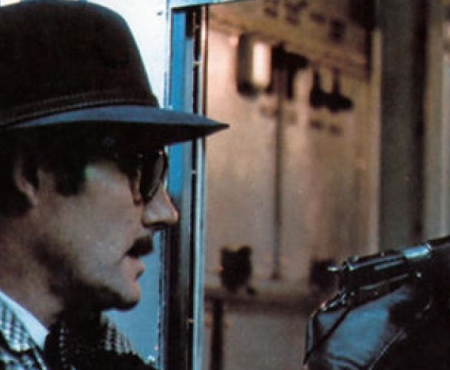Yesterday at Ebertfest was a day of twos.
It began with young filmmakers Sophie Kohn and Feike Santbergen whose short film To Music, about a trio of musicians who work out their issues through art, screened before Paul Cox’s Vincent on Thursday. They were gracious enough to sit down and chat with me about the difficult process of making movies, their adoration for Ebertfest, and what cinematic aspirations they have for the future. Here’s the transcribed interview.
After the discussion came the movies. We opened with Joachim Trier’s Oslo, August 31st, which is about the last film you’d think a festival would show at the beginning of the day. Trier’s story, which is a day-in-the-life of a recovering drug addict named Anders (played by Anders Danielsen Lie), is as heartbreaking as modern cinema gets. Drenched in realism, Oslo, which is now streaming on Netflix Instant Watch, maintains a pensive and melancholy atmosphere that encapsulates the tragic and cyclical nature of drug addiction to a tee. But Trier’s magnum opus isn’t bleak for the sake of being bleak. We feel Anders’ chronic struggle and pain. When he’s given an opportunity to succeed at a local magazine he turns it down in fear of possibly being happy. While most of us probably can’t relate to Anders’ addiction to a myriad of harmful drugs, we can relate to his existential crisis, which is to find purpose in our lives.
Once Oslo ended it was time for a break. The Ballad of Narayama, which was Roger’s last installment into his “Great Movie” catalog, was up next. I unfortunately did not stay. However, if you’re interested I urge you to seek out Roger’s wonderful review of the film.
Since we began the day with a drug addict, it seemed only fitting to end with a different kind of addict: one possessed by alcohol and deceit. Directed by Erick Zonca, the film is entitled Julia, and it’s a spellbinding crime thriller that effectively puts the viewer into a state of manic and vertigo. We lack complete control as our protagonist (the titular character played by Tilda Swinton) makes one bad decision after the next. She kidnaps, drugs, and spits profanities at this young boy for the sake of earning 2 million dollars in ransom money. And yet, somehow, someway, we still like Julia as a human being. We know she’s psychologically troubled. We know she’s illogical. We know she hurts just about everyone she touches. Still, we still care for Julia and Julia (which is absolutely not a reference to the dismal Julia Child film from 2008). I spare the plot details for your benefit. Julia, although messy and disjointed, is extraordinarily intense from beginning to end.
Although it didn’t seem possible, the Q & A that followed the movie was every bit as intriguing as the film we had just watched. Tilda Swinton answered each inquiry, ranging from her early experimental work in England to sleeping in a box at the MoMA, with eloquence and sincerity. In due time I’m sure Ebertfest.com will have the whole session up and available to watch.
Swinton is the first invaluable soul I mentioned in the byline of this article. The second is Chaz Ebert.
No writing I produce could properly articulate how instrumental Chaz has been for Ebertfest and my personal career as a film critic. So I’ll just say: thank you Chaz. Thank you for keeping the Ebert name alive and well. Thank you for being a strong-willed woman who beautifully introduces every movie that plays at Ebertfest. Thank you for accepting everyone with open arms. And most importantly thank you for being you.
Like Roger, you’re an invaluable and irreplaceable human being, and I will forever be indebted to your generosity and kindness.
More to come.




















